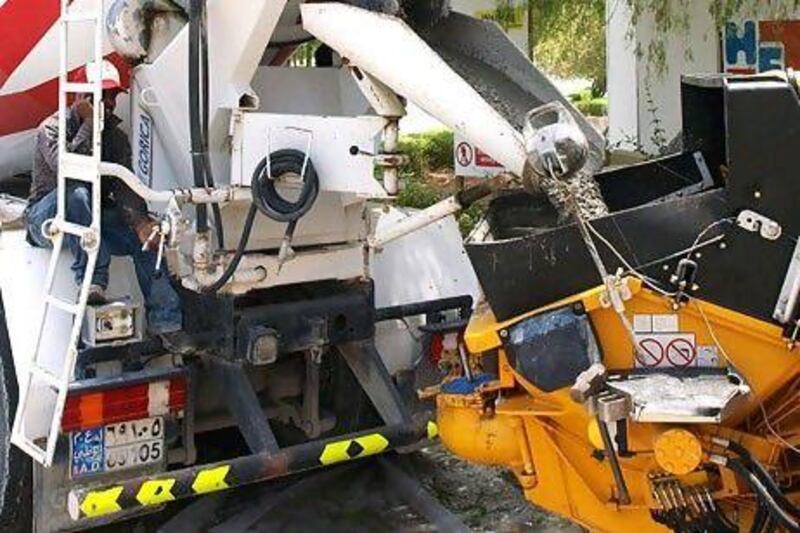From a market that has been heavy with the woes of the financial crisis, the Middle East's building materials companies are starting to cement some improvements.
Despite challenging construction market conditions throughout the Arabian Gulf, the Abu Dhabi-listed Union Cement Company yesterday announced net profits of Dh26.5 million for the first six months of this year compared with a loss of Dh8.8m for the same period last year.
Shares in the company rose from 85 fils to 93 fils between August 2 and yesterday. The volume of cement sold in the UAE plunged in recent years due to the slowdown in the construction industry coupled with extensive expansion of clinker and cement capacity in the market before the 2008 crash.
But last year, major cement manufacturers raised their prices to cover increases in electricity and production costs.
The move has angered property developers who complain it has further eaten away at their hard-pressed margins.
"The reason for the significant increase in profits was as a result of the improvement in the selling price of cement and clinker this year," said Yasir Ahmed bin Humaid Al Qassimi, Union's general manager, in a statement posted on the Abu Dhabi Securities Exchange.
Earnings per share at the company stood at 3 fils at the end of June - up on the 2 fils earnings at the same time last year.
Union Cement reported the cost of sales ratio for the first half of this year amounted to 81.3 per cent of total sales compared with 94.8 per cent during the same period last year on the back of lower procurement costs, and efficiency savings.
Four years ago, Emirati executives took over the management of the company, in line with the firm's long-term strategy, and today UAE nationals represent 22 per cent of the company's workforce.
twitter: Follow and share our breaking business news. Follow us
iPad users can read the digital edition of business section as it was printed via our e-reader app. Click here





